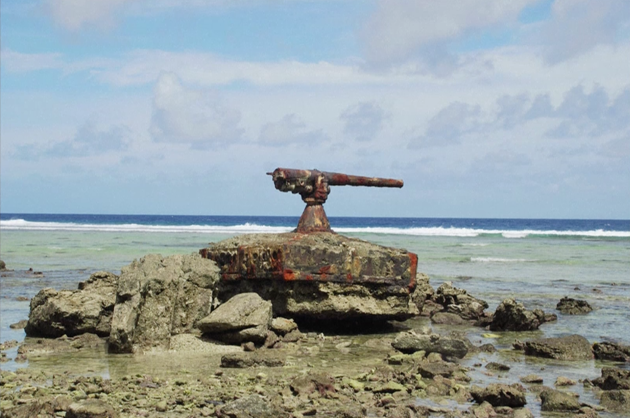It has been decades since WWII, but remnants of the struggle are still being discovered worldwide. On Mili (one of the Marshall Islands in the Pacific), these discoveries have already been made. Yet they continue to impact the lives of those who live there. While no longer under Japanese regulation, Mili has become something of an exhibit to the types of artifacts one might have seen there while WWII was still underway.
This is because the people of Mili are resourceful to the very end. For instance, one may use an artifact of some height to dry laundry, while something smaller and harder may be used as a mortar for making spices. This saves them the trouble of having the clear the massive amounts of WWII vestiges left behind, such as American explosive weaponry that became waste when its incendiary capabilities failed during combat.
Mili had many capacities as a WWII outpost, having been used as a communications hub, a meteorological outpost, and an Imperial airbase. With literally thousands of metric tons worth of scrap from the conflict, it seems much easier to find alternative uses for it rather than to undertake what would easily be one of the largest renovation efforts in history by trying to clear it all away, The Guardian reports.
This is not to say that there has been no effort whatsoever to improve the state of the island; the Peace Corps has aided the destruction of many discarded explosives, and with good reason. While there have been no such problems on Mili as of yet, there are worries of chemical pollution or the possibility that some of the many WWII explosives that have yet to be found may still be live. One of the fears is that the Japanese utilized a specific type of acid called picric in a majority of their bombs, and if it were to leak out into the ocean there could be widespread seafood contamination.
So far, Mili has remained safe for the several decades in between WWII and today; however, such things can change in a heartbeat depending on further discoveries. While disposal of the weapons may not be a priority to the island’s inhabitants, that does not mean there is no good reason for taking such steps. Until then, they can live a richly unique life as one of the few locales where history is literally present in every step they take.
//
